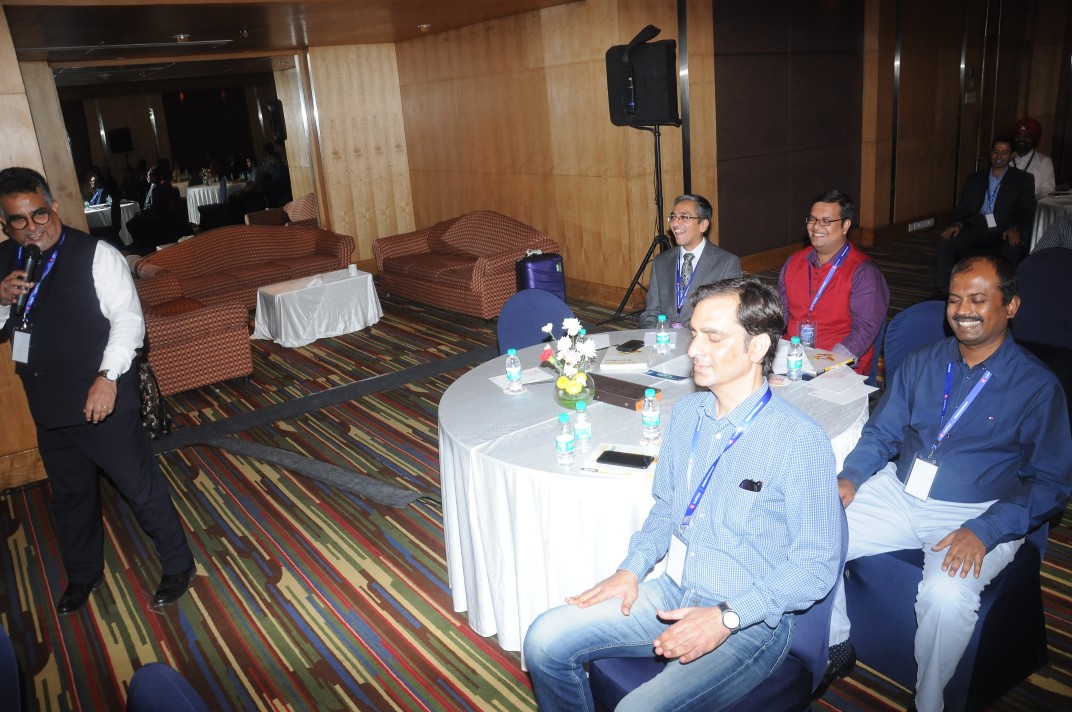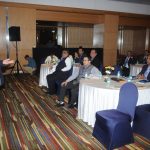Hot topics
Is Pharma Losing Good SalesPeople
Articles by Gopal Kishore, K. Hariram, Pankaj Mehrotra and Vivek Hattangadi
Prabhir Jha: Digital is not just another technology, it is a mind-set
DigiStorm 2018 was held on 11 September at the...
Medical Rep to Doctorate in Human Resources and Board of Directors
MVS Murthy
I began my career as a Medical Rep...
Rethinking Healthcare Communications for the Indian Context
Indian healthcare is sometimes an enigma: on one hand...
Bring Your Own Learning
Articles by K. Hariram, Vivek Hattangadi, DigiPharmaX, Satya Mahesh, Ajesh Shah and Phanish Chandra
Top 25 Indian Pharma Companies by Revenues in 2024
India pharma is crucial for global healthcare, providing affordable...
Top 10 Indian Pharma – 2025
India's top 10 pharma companies by market capitalization, offering insights into...
Antibody-Drug Conjugates (ADCs): The Disruptors Leading Oncology’s Gold Rush in 2025
1. Market Overview
The oncology sector remains the most dominant...
FLUX – Indian Pharma in the Post VUCA World
Introduction
For decades, leaders and organizations have relied on the...
Top 25 Indian Pharma Companies by Revenues in 2024
India pharma is crucial for global healthcare, providing affordable...
Top 10 Indian Pharma – 2025
India's top 10 pharma companies by market capitalization, offering insights into...
Antibody-Drug Conjugates (ADCs): The Disruptors Leading Oncology’s Gold Rush in 2025
1. Market Overview
The oncology sector remains the most dominant...
FLUX – Indian Pharma in the Post VUCA World
Introduction
For decades, leaders and organizations have relied on the...
Top 25 Indian Pharma Companies by Revenues in 2024
India pharma is crucial for global healthcare, providing affordable...
Top 10 Indian Pharma – 2025
India's top 10 pharma companies by market capitalization, offering insights into...
Antibody-Drug Conjugates (ADCs): The Disruptors Leading Oncology’s Gold Rush in 2025
1. Market Overview
The oncology sector remains the most dominant...
FLUX – Indian Pharma in the Post VUCA World
Introduction
For decades, leaders and organizations have relied on the...
Top 25 Indian Pharma Companies by Revenues in 2024
India pharma is crucial for global healthcare, providing affordable...
Top 10 Indian Pharma – 2025
India's top 10 pharma companies by market capitalization, offering insights into...
Antibody-Drug Conjugates (ADCs): The Disruptors Leading Oncology’s Gold Rush in 2025
1. Market Overview
The oncology sector remains the most dominant...
FLUX – Indian Pharma in the Post VUCA World
Introduction
For decades, leaders and organizations have relied on the...
Hot topics
Is Your Field Force Optimised to Make the Most of Market Growth in Metros?
Summary of Performance of Top 30 Metros in IPM...
Prabhir Jha: Digital is not just another technology, it is a mind-set
DigiStorm 2018 was held on 11 September at the...
Smell of the Workplace – Wonderful Metaphor to Understand the Context of Performance
In a World Economic Forum talk, Professor Sumantra Ghosal - the founding Dean of the Indian School of Business, Hyderabad - talked about the "Smell of the Workplace" as a metaphor to describe the need for creating a new context that enables employees to change their mindset from that of Constraint, Compliance, Control and Contract to that of Stretch, Discipline, Trust and Support.
Five Disruptive Forces Shaking Up Indian Pharma
A curtain raiser on disruptions that will permanently alter the pharma marketing landscape in the near future.
Top 25 Indian Pharma Companies by Revenues in 2024
India pharma is crucial for global healthcare, providing affordable...
Top 10 Indian Pharma – 2025
India's top 10 pharma companies by market capitalization, offering insights into...
Antibody-Drug Conjugates (ADCs): The Disruptors Leading Oncology’s Gold Rush in 2025
1. Market Overview
The oncology sector remains the most dominant...
FLUX – Indian Pharma in the Post VUCA World
Introduction
For decades, leaders and organizations have relied on the...
Top 25 Indian Pharma Companies by Revenues in 2024
India pharma is crucial for global healthcare, providing affordable...
Top 10 Indian Pharma – 2025
India's top 10 pharma companies by market capitalization, offering insights into...
Antibody-Drug Conjugates (ADCs): The Disruptors Leading Oncology’s Gold Rush in 2025
1. Market Overview
The oncology sector remains the most dominant...
FLUX – Indian Pharma in the Post VUCA World
Introduction
For decades, leaders and organizations have relied on the...
Top 25 Indian Pharma Companies by Revenues in 2024
India pharma is crucial for global healthcare, providing affordable...
Top 10 Indian Pharma – 2025
India's top 10 pharma companies by market capitalization, offering insights into...
Antibody-Drug Conjugates (ADCs): The Disruptors Leading Oncology’s Gold Rush in 2025
1. Market Overview
The oncology sector remains the most dominant...
FLUX – Indian Pharma in the Post VUCA World
Introduction
For decades, leaders and organizations have relied on the...
Top 25 Indian Pharma Companies by Revenues in 2024
India pharma is crucial for global healthcare, providing affordable...
Top 10 Indian Pharma – 2025
India's top 10 pharma companies by market capitalization, offering insights into...
Antibody-Drug Conjugates (ADCs): The Disruptors Leading Oncology’s Gold Rush in 2025
1. Market Overview
The oncology sector remains the most dominant...
FLUX – Indian Pharma in the Post VUCA World
Introduction
For decades, leaders and organizations have relied on the...
MedicinMan was launched in 2011 as India’s 1st Magazine dedicated to the cause of Field Force Excellence in Pharma and Devices.
Read More
Headlines
Top 25 Indian Pharma Companies by Revenues in 2024
India pharma is crucial for global healthcare, providing affordable...
Top 10 Indian Pharma – 2025
India's top 10 pharma companies by market capitalization, offering insights into...
Antibody-Drug Conjugates (ADCs): The Disruptors Leading Oncology’s Gold Rush in 2025
1. Market Overview
The oncology sector remains the most dominant...
Newsletter
Get important news delivered directly to your inbox and stay connected!




